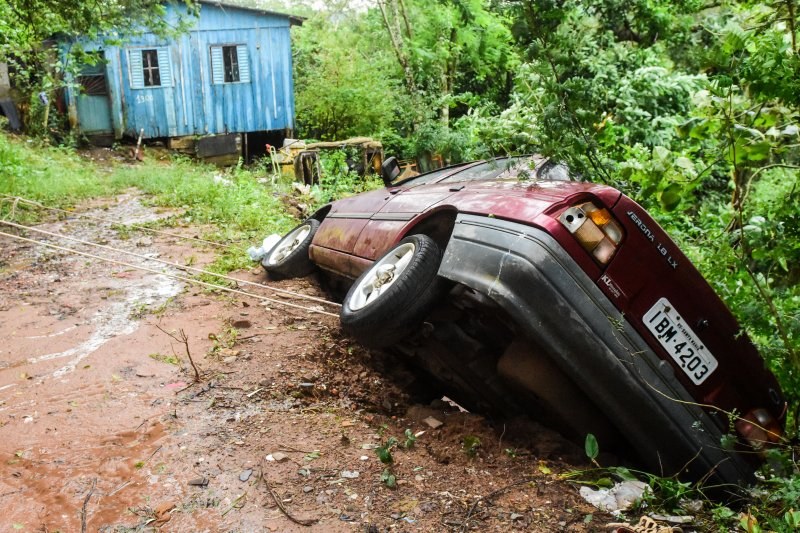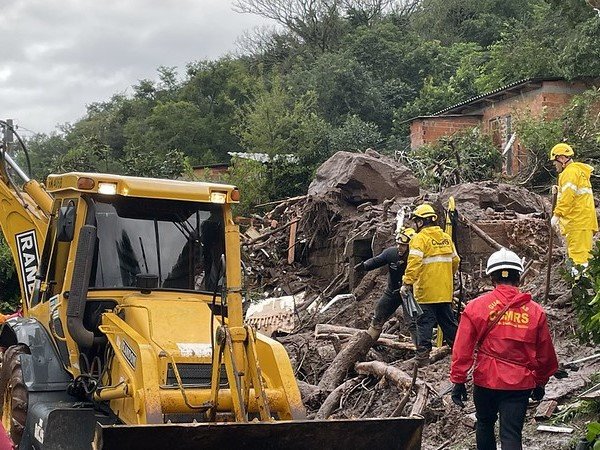Santa Maria: Battling climate change challenges as the world's rainfall capital
During the recent severe rainfall in the Rio Grande do Sul state, Southern Brazil, a reporter from the G20 communication team, Fabrício Vargas, found himself stranded in his hometown of Santa Maria. With the main airport in the state capital, Porto Alegre, indefinitely closed, he provided an exclusive firsthand report on the city's dire situation for the G20 Brasil website.

Santa Maria, the city that experienced the highest rainfall in the world last Wednesday (1st), is now confronting an unparalleled challenge in the wake of heavy rains, which amassed over 400 mm in just three days. Despite its picturesque hills and vibrant community, the municipality has been inundated by unprecedented flooding, marking the highest recorded rainfall in its history.
In addition to being the site of the tragic fire at the Kiss nightclub, which resulted in the loss of 242 lives in 2013, Santa Maria serves as another illustration of unregulated urban expansion. This unchecked growth has left numerous areas lacking the essential infrastructure needed to endure severe weather occurrences, further exacerbating the challenges faced by the community.
Encountering such a situation in one's hometown, amidst landscapes familiar since childhood, leaves indelible impressions. Bearing witness to the scene was harrowing: torrential rains transformed the city streets into surging rivers, cars into makeshift boats, and houses into isolated islands amid a tumultuous sea.
In a span of merely three days, more than a thousand individuals were displaced, compelled to find refuge in reception centers or the residences of acquaintances and relatives. Moreover, the city mourned two fatalities resulting from a landslide on Cechela Hill, a prominent landmark in the region. The encroaching waters rendered roads impassable, severing connections to neighboring cities and accentuating the sense of isolation.
Amidst the devastation, the unwavering spirit of solidarity and resilience shone through. Neighbors rallied to support one another, volunteers bravely risked their lives in rescue missions, and emergency services remained tirelessly dedicated to upholding order. Compassion and unity during adversity emerge as essential foundations for overcoming challenges of this magnitude. However, addressing climate phenomena through sustainable practices is imperative to counter and prevent floods like those experienced in Rio Grande do Sul.

On May 2, the city received a visit from President Lula, accompanied by a delegation of ministers, who swiftly pledged support and outlined a reconstruction plan involving the release of infrastructure and resources, along with the engagement of the Armed Forces. However, even as the rains receded in the central region and other parts of the state, a new concern emerged in the metropolitan region of Porto Alegre, the state capital, due to the rising level of the Guaíba River, fueled by the influx of waters from the state's rivers flowing toward the sea. In essence, the tragedy continues to unfold, affecting an even larger population.
The prevailing reality driving discussions across several G20 working groups underscores the urgent necessity for substantial investment in effective watershed management. Safeguarding green spaces and implementing water drainage and retention systems can mitigate the adverse effects of heavy rainfall and avert catastrophic floods, which disproportionately affect nations in the Global South. Furthermore, it is imperative to advocate for planned and conscientious urban development, prioritizing the judicious utilization of natural resources and adapting to inevitable climate fluctuations.
Navigating through this period has been a journey fraught with challenges. Observing my beloved city, cherished friends, and dear family confronting uncertainty in the wake of imminent rainfall, threatening to undo what little remains, underscores the importance of vigilance. Now, more than ever, it is crucial to heed the call of climate change and explore innovative solutions. The time has come to take proactive measures to ensure that the prevailing tragedies endured by our state become mere recollections of a painful past, supplanted by optimism for a future characterized by our resilience and unity.